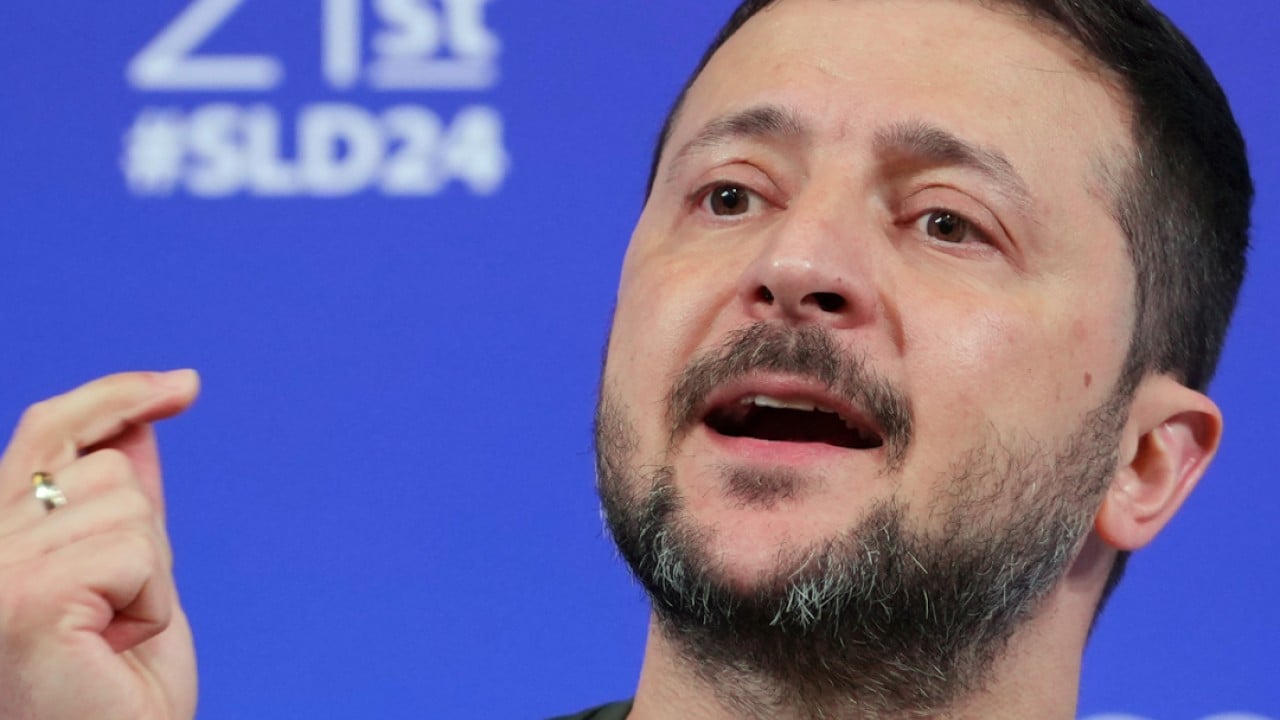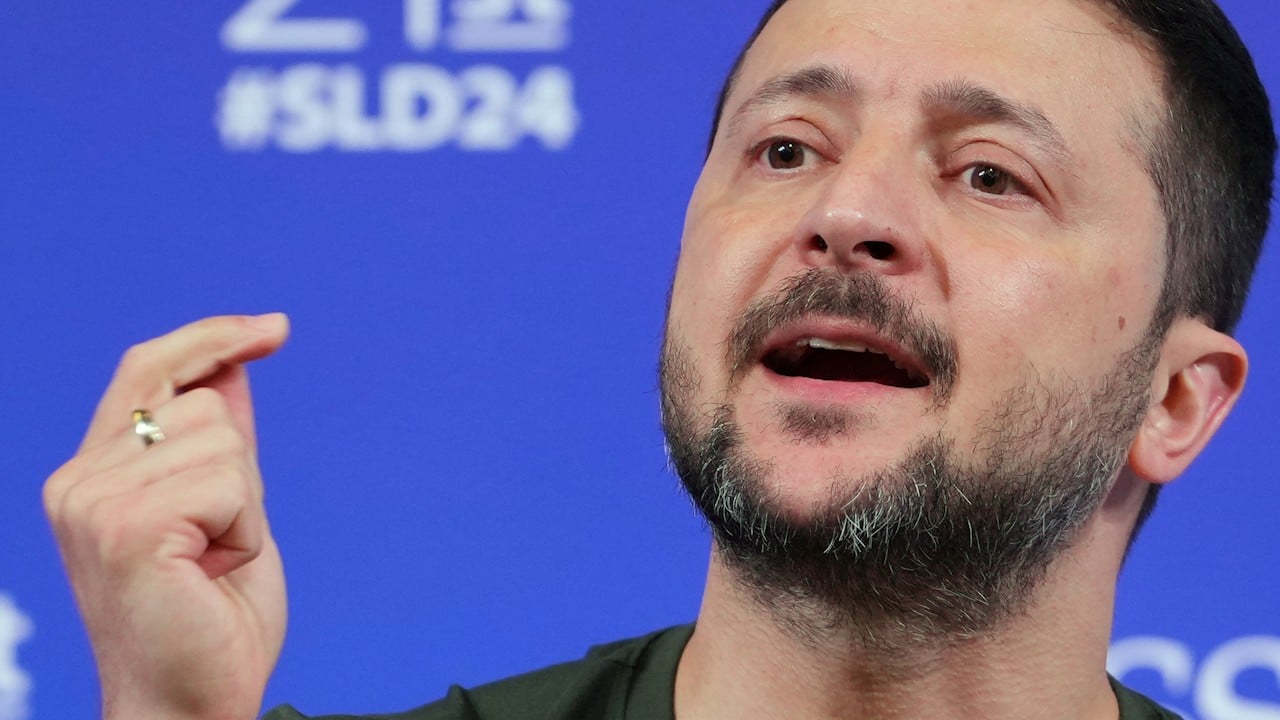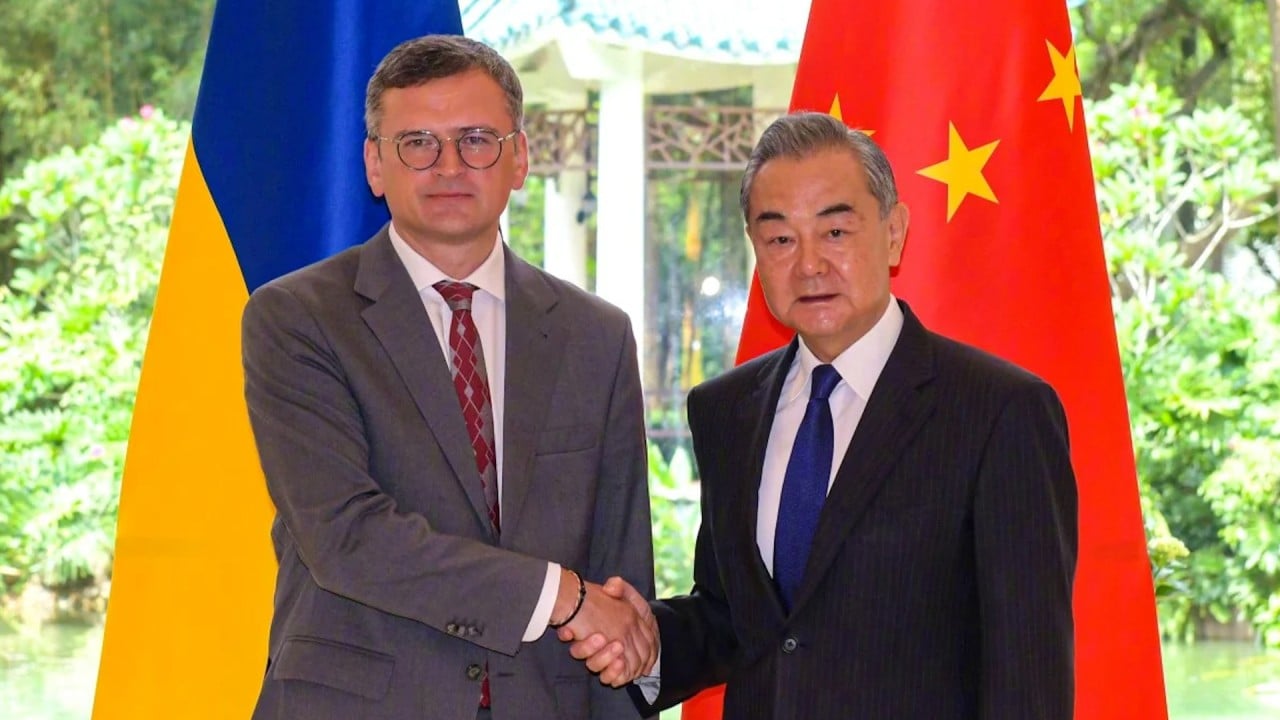Ukrainian foreign minister Dmytro Kuleba wrapped up a four-day visit to China on Friday – his first trip to the country since the Ukraine war started over two years ago – as part of an effort to secure peace and economic support.
At Guangzhou’s Pine Garden on Wednesday, a former residence of Chinese President Xi Jinping’s father and a venue used to host important domestic and foreign officials, Kuleba and his Chinese counterpart Wang Yi spoke for more than three hours about Ukraine’s path to peace. The talks were “frank” and carried on longer than planned, according to the Ukrainian diplomat.
While many have speculated about why Guangzhou was chosen as a meeting place rather than capital city Beijing, observers said that while the pick was somewhat surprising, it was not unprecedented.
They said the choice showed that China and Ukraine intended to revive their strained ties amid the war, but it could also have been a strategic decision by Beijing to preserve relations with Russia.
Wang Yiwei, an international relations professor at Renmin University, said that Guangzhou was a “less formal” choice of venue that provided a more relaxed setting for the meeting, which followed Ukraine’s recent criticism of China’s role in the war.
Ukrainian President Volodymyr Zelensky has long hoped that China would use its influence over Russia to end the war. But he seemed to lose patience recently when he accused China of helping Moscow to undermine a global peace summit held in Switzerland last month.
Beijing, which has positioned itself as a peacemaker in the conflict, skipped that summit, to which Russia was not invited. China instead called for a fair summit with equal participation by both Russia and Ukraine.
“Instead of criticising China, [Ukraine] now hopes that it may play the role of a mediator,” Wang said.
“For [Ukraine], it should start engaging with China first … and hear directly from China and see if both can be brought together on finding a solution to the conflict.”
Wang told Kuleba in Guangzhou that China was committed to playing a constructive role in promoting a ceasefire and the resumption of peace talks, while Kuleba expressed willingness to negotiate directly with Russia if it was ready to do so “in good faith” – though he said he had observed “no readiness” from Moscow.
In an interview with Ukrainian media outlet TSN following his meeting with Wang, Kuleba said he received a clear signal from China that it was looking for sustainable but “not temporary” solutions to the conflict.
He also said Wang made clear that China’s support for Ukraine’s territorial integrity was “unshakeable”, and that Beijing viewed its relations with Ukraine and Russia separately and with an eye towards its national interests.
“Those who believe that China will stand on the side of Russia or on the side of Ukraine are deeply mistaken or are looking too superficially at China’s strategic vision of the development of the situation in the world, and not just in Ukraine,” Kuleba said.
China and Ukraine have traditionally enjoyed friendly ties. Beijing has been Kyiv’s biggest trade partner for years, while Kyiv was among the first countries to join China’s Belt and Road Initiative.
In Guangzhou, capital of Guangdong province and a sister city to Kyiv, Kuleba also met governor Wang Weizhong and other provincial officials. While there, he called for increased investment and economic support for his country’s recovery and reconstruction.
Guangdong is an economic powerhouse and the biggest province in China in terms of GDP, exceeding 13 trillion yuan (US$1.8 trillion) last year.
The province is also a part of the Greater Bay Area, an initiative aimed at linking several Guangdong cities, along with Hong Kong and Macau, to form an integrated economic hub.
Kuleba visited Hong Kong on Thursday, where he met business representatives and Chief Executive John Lee. While he called for deeper trade ties with the city, he warned it against being used to circumvent sanctions on Russia.
Over a dozen Hong Kong companies have been sanctioned by the US and EU for their alleged role in transferring dual-use goods to Russia to enable its war efforts.
Björn Alexander Düben, a lecturer specialising in China and Russia studies at the University of London’s Forward College in Berlin, said while economic ties could be a factor behind Kuleba’s south China tour, he did not believe it was a “primary motivation”.
“It is possible that Beijing deliberately arranged for the meeting to occur outside of the capital city, so as to subtly and symbolically downgrade the meeting relative to its diplomatic interaction with Russia,” he said.
He noted there was an “interesting contrast” with Russian Foreign Minister Sergey Lavrov’s April visit to Beijing, where he was received by Xi.
“Maybe Guangzhou was picked as the venue in order to make this contrast appear less awkward, creating a spatial distance between Xi and Kuleba during his visit.”
Analysts also speculated that Kuleba’s itinerary was meant to accommodate his travel schedule or to dovetail with Wang’s attendance at the Asean summit in Laos on Thursday.
Wang met Lavrov in Vientiane, the capital of Laos, on the sidelines of the Association of Southeast Asian Nations meeting on Thursday. Lavrov thanked China for its “balanced and consistent position on the Ukraine crisis” and its efforts to take care of the interests of all stakeholders.




